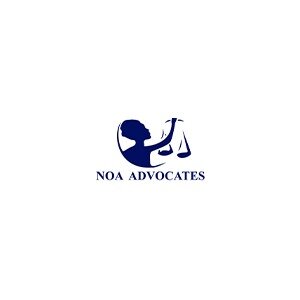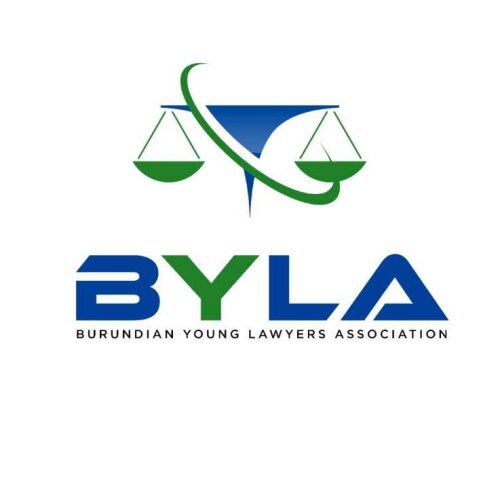Best Project Finance Lawyers in Burundi
Share your needs with us, get contacted by law firms.
Free. Takes 2 min.
Or refine your search by selecting a city:
List of the best lawyers in Burundi
About Project Finance Law in Burundi
Project finance is a method of funding large and capital-intensive projects, typically through a combination of debt and equity, where repayment is primarily reliant on the project's future cash flow rather than the sponsor's overall balance sheet. In Burundi, project finance is most commonly used in sectors like energy, infrastructure, mining, and telecommunications. Legal frameworks in Burundi governing these transactions focus on ensuring the security of investment, protecting the rights of lenders and investors, and providing clear guidelines for project operation and risk management. Understanding project finance law in Burundi is essential for anyone planning to undertake or invest in significant infrastructure and development projects in the country.
Why You May Need a Lawyer
Engaging a qualified lawyer is crucial for navigating the complexities of project finance in Burundi. Common scenarios where legal help is needed include:
- Drafting and negotiating loan agreements, joint venture agreements, or partnership contracts
- Ensuring compliance with local laws, regulations, and licensing requirements
- Assessing the legal structure of a project to minimize risks and liabilities
- Managing disputes between stakeholders, sponsors, lenders, or contractors
- Securing government approvals, permits, and concessions
- Conducting due diligence on potential partners or assets
- Structuring and registering collateral or security interests to protect lenders' rights
- Guiding foreign investors through the legal framework specific to Burundi
A project finance lawyer can provide valuable insight, help anticipate and manage risks, and ensure compliance with local and international law, making complex transactions smoother and more secure.
Local Laws Overview
Project finance in Burundi operates within a legal framework influenced by local laws, regional regulations from the East African Community (EAC), and international best practices. The following are key aspects of local laws relevant to project finance:
- Investment Code - Burundi's Investment Code provides incentives and protections for investors and establishes guidelines for project approval processes.
- Banking and Financial Laws - The legal framework for lending, repayment, and financial institutions is governed by the Central Bank of Burundi (BRB) regulations.
- Securities and Collateral - Laws about securing loans against project assets or other forms of collateral are critical to protect lenders' interests.
- Public-Private Partnerships (PPPs) - Burundi encourages PPPs in infrastructure through specific legal provisions to facilitate cooperation between the government and private entities.
- Environmental and Social Regulations - Environmental Impact Assessment (EIA) and social responsibility laws apply to large-scale projects to ensure sustainability and community interests.
- Dispute Resolution - Local courts and, where applicable, international arbitration mechanisms are available to address disputes arising from project finance transactions.
Given the evolving nature of project finance law in Burundi, staying informed of regulatory changes and consulting legal professionals is highly recommended for anyone involved in these projects.
Frequently Asked Questions
What is project finance and how does it differ from traditional financing?
Project finance structures funding for a specific project by relying on its cash flow for repayment. It is different from traditional financing, which depends on the borrower’s overall balance sheet and creditworthiness.
What sectors most commonly use project finance in Burundi?
Project finance is most common in energy, transport infrastructure (roads, ports), telecommunications, and mining sectors within Burundi.
Are foreign investors allowed to participate in project finance in Burundi?
Yes, Burundi’s legal framework encourages foreign investment, including in project finance, subject to compliance with local laws and investment regulations.
What are the main risks involved in project finance?
Typical risks include construction delays, cost overruns, regulatory changes, environmental issues, and market or operational challenges. Legal advice is essential for identifying and mitigating these risks.
How are project finance agreements structured under Burundian law?
Agreements are usually complex and involve multiple parties, with clearly defined roles, responsibilities, loan and security arrangements, and detailed provisions for risk allocation and dispute resolution.
What legal protections exist for lenders in project finance deals?
Burundi allows for securing loans with project assets, performance guarantees, and enforceable contracts. The country's legal system recognizes the rights of secured creditors in case of default.
What government approvals are required for project finance?
Approvals may include investment registration, environmental clearance, sector-specific permits, and, if applicable, licenses for foreign businesses or public-private partnerships.
How are environmental and social issues handled in project finance?
Large projects require an Environmental Impact Assessment and adherence to regulations ensuring social responsibility, community engagement, and sustainable practices.
Can project finance disputes in Burundi be resolved through arbitration?
Yes, disputing parties can agree to resolve conflicts via local courts or through arbitration, including international forums if specified in contractual agreements.
How can a lawyer assist with cross-border project finance deals?
A lawyer experienced in cross-border project finance will assist in compliance with both Burundian and international laws, manage due diligence, structure agreements, and safeguard investor interests.
Additional Resources
If you seek more information or assistance, the following resources and organizations may be helpful:
- Burundi Investment Promotion Authority (API) - Government body supporting investment projects and investor facilitation
- Ministry of Finance, Budget and Economic Planning - Oversees financial regulations and public-private partnerships
- Central Bank of Burundi (Banque de la République du Burundi - BRB) - Regulatory authority for financial institutions and transactions
- Chamber of Commerce and Industry of Burundi (CCIB) - Provides support and guidance to businesses, including those involved in major projects
- Burundi Revenue Authority (OBR) - For matters involving taxation and fiscal aspects of projects
- Local law firms specializing in banking, finance, and commercial law
- International organizations such as the World Bank or African Development Bank for guidance on best practices and potential funding
Next Steps
If you need legal assistance in project finance in Burundi, consider these steps:
- Define the scope and details of your intended project or investment
- Gather all relevant documentation and preliminary agreements
- Consult a lawyer or law firm with experience in project finance, specifically within Burundi’s legal context
- Discuss your objectives, risks, and any regulatory or compliance concerns
- Request a review of all contracts, permits, and agreements before signing
- Engage your legal advisor throughout the lifecycle of the project, from initial negotiations to completion and beyond
- Remain informed about updates to local laws that may affect your project or investment
Legal guidance is a critical investment when dealing with project finance in Burundi, ensuring your venture is secure, compliant, and well-structured for success.
Lawzana helps you find the best lawyers and law firms in Burundi through a curated and pre-screened list of qualified legal professionals. Our platform offers rankings and detailed profiles of attorneys and law firms, allowing you to compare based on practice areas, including Project Finance, experience, and client feedback.
Each profile includes a description of the firm's areas of practice, client reviews, team members and partners, year of establishment, spoken languages, office locations, contact information, social media presence, and any published articles or resources. Most firms on our platform speak English and are experienced in both local and international legal matters.
Get a quote from top-rated law firms in Burundi — quickly, securely, and without unnecessary hassle.
Disclaimer:
The information provided on this page is for general informational purposes only and does not constitute legal advice. While we strive to ensure the accuracy and relevance of the content, legal information may change over time, and interpretations of the law can vary. You should always consult with a qualified legal professional for advice specific to your situation.
We disclaim all liability for actions taken or not taken based on the content of this page. If you believe any information is incorrect or outdated, please contact us, and we will review and update it where appropriate.
Browse project finance law firms by city in Burundi
Refine your search by selecting a city.












